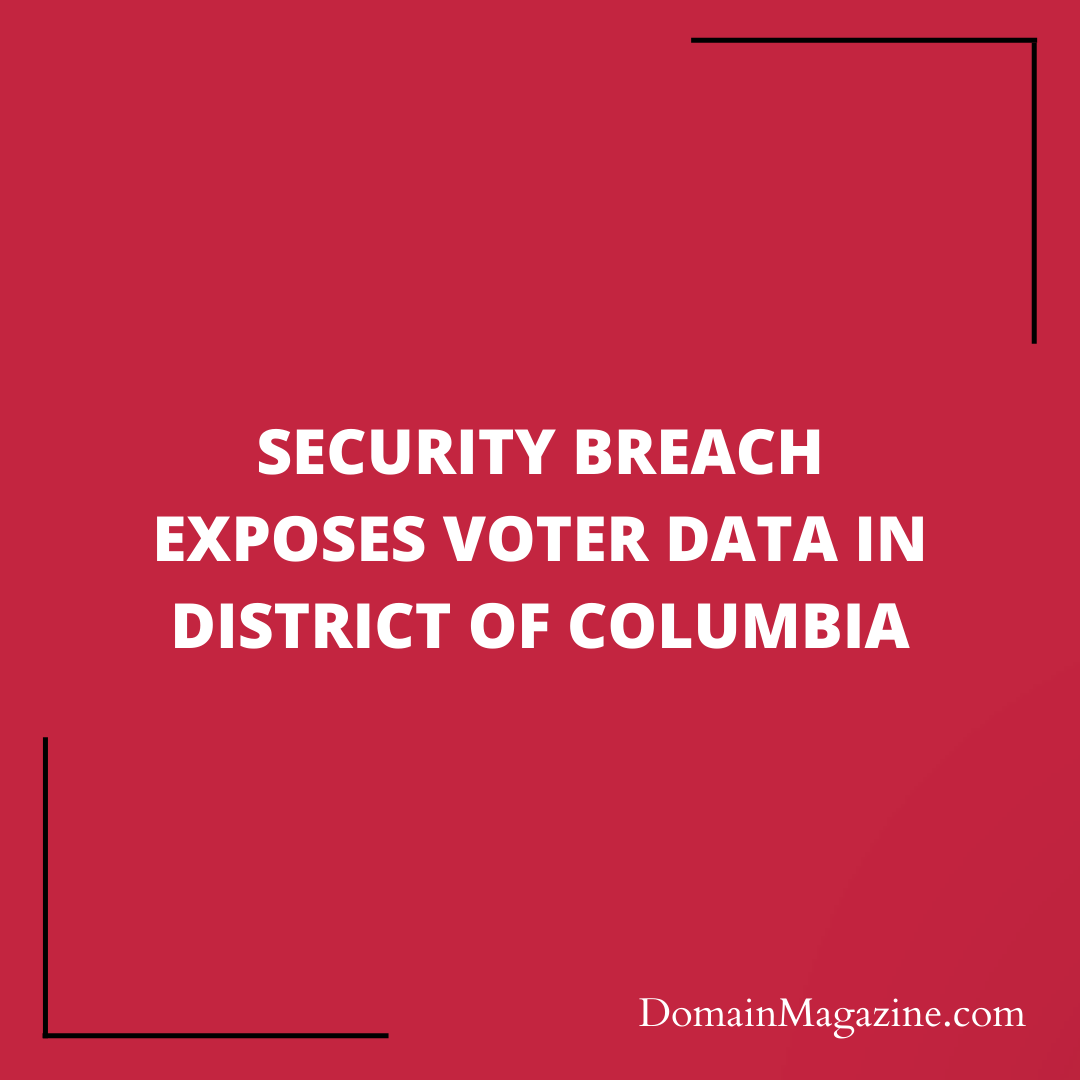In a concerning turn of events, a hacking group known as RansomVC has claimed responsibility for a significant data breach involving the District of Columbia Board of Elections (DCBOE). The breach, which came to light recently, has exposed sensitive voter information, raising questions about data security and the potential implications for affected individuals.

Scope of the Breach
RansomVC’s claim asserts that they successfully infiltrated the DCBOE’s records, obtaining access to over 600,000 lines of voter data. Each line in this context represents a complete voter record, including a range of personal information. This information encompasses VoterID, registration dates, voter names (first, middle, last), partial Social Security Numbers (SSN), driver’s license numbers, telephone numbers, dates of birth, postal addresses, political party affiliations, email addresses, and polling place details.
Confidential Information at Risk
One significant concern arising from this breach is the exposure of confidential voter information. Notably, specific data fields—such as any part of SSNs, dates of birth, email addresses, phone numbers, and the identity of the voter registration agency where the voter registered—are intended to be kept confidential to protect individuals’ privacy. Unfortunately, it appears that these confidential details have been compromised.
Data Pricing and Accessibility
While the price for this stolen data was not publicly disclosed, insights from 2020 suggest that the value of voter data can vary significantly by state. The level of restrictions on the use of such data can also differ, with some states imposing limits on its commercial use. However, it’s essential to note that the stolen data does not contain full SSNs, which could affect its black market value.
DCBOE’s Response and Investigation
In response to the breach, DCBOE has launched a comprehensive investigation into the incident. They have reported that voter registration data, including names, addresses, voting records, and party affiliations, is generally considered public information, unless specific regulations have designated it as confidential.
DCBOE is actively collaborating with a range of partners to address the breach, including federal law enforcement agencies like the FBI and DHS, as well as the Multi-State Information Sharing and Analysis Center (MS-ISAC) and the Office of the Chief Technology Officer (OCTO). Their primary objective is to resolve the issue, assess the full extent of the breach, identify vulnerabilities, and take appropriate measures to secure voter data and systems.
Implications and Ongoing Investigation
This breach has significant implications for data privacy and security, potentially putting thousands of individuals at risk. As the investigation unfolds, it remains crucial for DCBOE to keep the public informed about the situation and take the necessary steps to mitigate any harm caused by the breach.
In the era of increasing cyber threats, incidents like this serve as stark reminders of the importance of robust data protection measures and proactive cybersecurity practices. The full extent of the impact of the DCBOE breach is yet to be determined, and as the investigation progresses, we can only hope for swift and effective resolution to safeguard the affected individuals’ sensitive information.


Join the Discussion